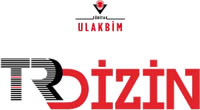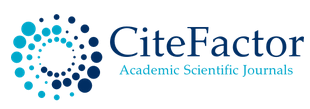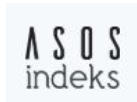Dijital Okuryazarlık Bağlamında Ortaokul Türkçe Ders Kitapları (Turkish Language Textbooks at Secondary School in the Context of Digital Literacy)
DOI:
https://doi.org/10.15659/ankad.v6i2.210Keywords:
Turkish lesson education, digital literacy, Turkish lesson curriculum, Turkish lesson textbooks of secondary schoolAbstract
Digital literacy is defined as “the ability to reach and produce information by using digital technological tools”. It consists of a process based on individuals accessing, understanding, interpreting information in digital environments, and using and producing this information. The effect of four basic language skills on the development of digital literacy skills is great. An individual who can use his/her mother tongue effectively should also be able to use it effectively in digital environments. The aim of this study is to examine the secondary school Turkish textbooks prepared in the ‘Turkish Lesson Curriculum’ (2019) in the context of digital literacy skills. The method of the research is case study. Relevant literature and the Global Standards Framework for Digital Literacy, Skills, and Readiness (DQ Framework) were reviewed, and document review items were created. In the Turkish Language Curriculum (2019), the achievements related to digital literacy skills were determined, and Turkish textbooks were examined according to the achievements. As a result of the study, it was seen that the number of achievements related to digital literacy was not reflected in the number of activities. The number of activities is less. It is the 7th grade textbook that includes the least amount of digital literacy (2.34%); it is the 5th grade textbook that gives the most place (5.2%). This ratio is considered insufficient. In addition, it has been identified that the connection addresses in the books are out of date. Some of the events also do not fully reflect digital content.
References
Akgül, A., Demirer, N., Gürcan, E., Karadaş, D., Karahan, İ. & Uysal, A. (2018). 7. sınıf ortaokul ve imam hatip ortaokulu Türkçe ders kitabı. Ankara: Millî Eğitim Bakanlığı Yayınları.
Altun, N. (2019). Temel eğitim programları ve ders kitaplarının dijital okuryazarlık bağlamında incelenmesi (Yayımlanmamış Yüksek Lisans Tezi). Gazi Üniversitesi Eğitim Bilimleri Enstitüsü, Ankara.
Aşıcı, M. (2009). Kişisel ve sosyal bir değer olarak okuryazarlık. Değerler Eğitimi Dergisi, 7 (17), 9-26.
Bates, A.W. (2002). Managing technological change: Strategies for college an universities.
San Fransisco CA: Jassey Bass Inc.
Creswell, J.W. (2007). Qualitative inquiry & research design: Choosing among five approaches (2. Baskı). USA: Sage Publications.
Çapraz Baran, Ş. & Diren, E. (2019). Ortaokul ve imam hatip ortaokulu Türkçe 5. sınıf ders kitabı. Ankara: Anıttepe Yayıncılık.
Direkçi, B., Akbulut, S. & Şimşek, B. (2019). Türkçe dersi öğretim programı (2018) ve ortaokul Türkçe ders kitaplarının dijital okuryazarlık becerileri bağlamında incelenmesi. Avrasya Uluslararası Araştırmalar Dergisi, 7(16), 797-813.
Ertem, İ. S. (2014). Okuma Yazma Eğitimi ve Teknolojisi. Ankara: Nobel.
Ertürk, N., Keleş, S. & Külünk, D. (2020). Ortaokul ve imam hatip ortaokulu Türkçe 6 ders kitabı. Ankara: Millî Eğitim Bakanlığı Yayınları.
Eselioğlu, H., Set, S. & Yücel, A. (2020). Ortaokul ve imam hatip ortaokulu Türkçe 8 ders kitabı. Ankara: Millî Eğitim Bakanlığı Yayınları.
Eshet Alkalai, Y. (2004). Digital literacy: a conceptual framework for survival in the digital era. Journal of Multimedia and Hypermedia, 13(1), 93-106.
Falloon, G. (2020). From digital literacy to digital competence: the teacher digital competency (TDC) framework. Educational Technology Research and Development, 68(5), 2449– 2472.
Gilster, P. (1997). Digital literacy. New York: Wiley Computer Publication
Goodfellow, R. (2011). Literacy, literacies, and the digital in higher education. Teaching in Higher Education. 16(1), 131-144.
Hague, C. & Payton, S. (2010). Digital literacy across the curriculum. London, UK: Futurelab. JIST Guide (2021). Developing digital literacies. https://www.jisc.ac.uk/guides/developing-
digital-literacies. Erişim Tarihi: 25.05.2021
Maden, S., Maden, A. & Banaz, E. (2018). Ortaokul 5. Sınıf Türkçe ders kitaplarının dijital okuryazarlık bağlamında değerlendirilmesi. Uluslararası Sosyal Araştırmalar Dergisi, 11(55), 685-698.
Martin, A. (2008). Digital literacy and the digital society. https://pages.ucsd.edu/- bgoldfarb/comt109w10/rea ding/Lankshear-Knobel et al-Digital Literacies pdf. Erişim Tarihi: 22.10.2021.
Millî Eğitim Bakanlığı (2019). Türkçe öğretim programı. Ankara. Mesleki Yeterlilik Kurumu (2015). Türkiye yeterlilikler çerçevesi. Ankara
Özbay, M. & Özdemir, O. (2014). Türkçe öğretim programı için bir öneri: Dijital okuryazarlığa
yönelik amaç ve kazanımlar. Okuma Yazma Eğitimi Araştırmaları, 2(2), 31-40.
Sağıroğlu, Ş., Bülbül, H. İ., Kılıç, A. & Küçükali, M. (2020). Dijital okuryazarlık ve ötesi. Sağıroğlu, Ş., Bülbül, H. İ., Kılıç, A. & Küçükali, M (Ed.). Dijital okuryazarlık: araçlar, metodolojiler, uygulamalar ve öneriler.(s.25-27). Ankara: Nobel Yayınları.
Saluk, N. & Pilav, S. (2018). Üstün yeteneklilerde yaratıcı yazma becerilerinin geliştirilmesi üzerine bir araştırma. Ahi Evran Üniversitesi Kırşehir Eğitim Fakültesi Dergisi, 19(3), 2191-2215.
TDK (2021). http://www.tdk.gov.tr/ (Erişim tarihi: 05.05.2021).
Yıldırım, A. & Şimşek, H. (2011). Sosyal bilimlerde nitel araştırma yöntemleri. Ankara: Seçkin Yayıncılık.
Downloads
Published
How to Cite
Issue
Section
License
Copyright (c) 2024 Journal of Anatolian Cultural Research (JANCR)

This work is licensed under a Creative Commons Attribution-NonCommercial 4.0 International License.










